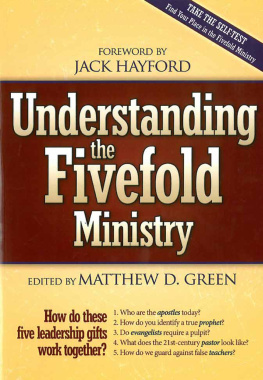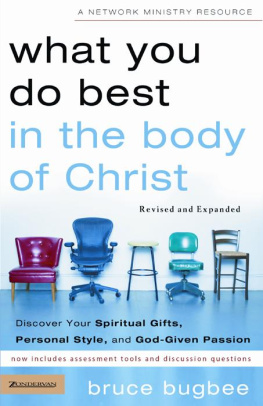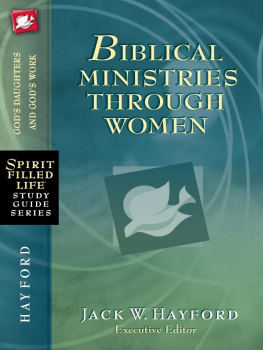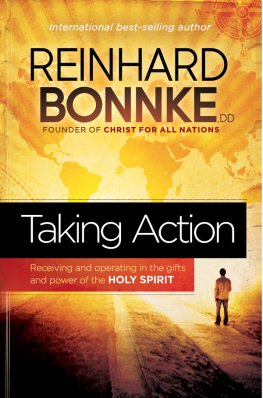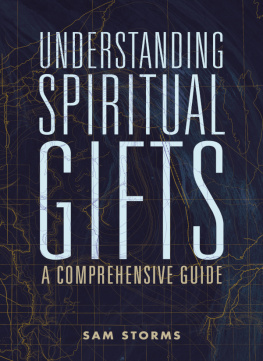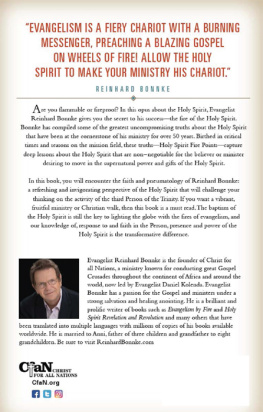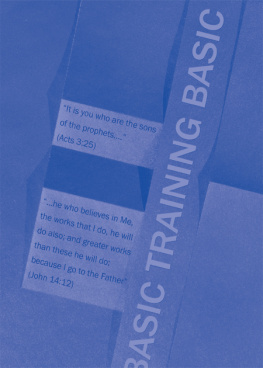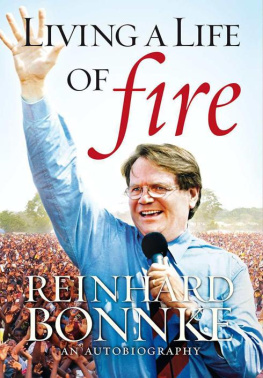

E VEN THOUGH THEY hold pride of place in Pauls Ephesians 4 list, apostles are themost controversial of the five, and everyone in the Charismatic/Pentecostal communityseems to have an opinion about who is an apostle, who is not, and why you shouldread their latest book on apostleship. The apostle debate shows no sign of losingsteam, but we think youll agree that the leaders highlighted in the following pagesdemonstrate the key characteristics embodied in the New Testaments descriptionof apostolic ministry.
Each demonstrates humility and servanthood, intent not on building a personal empire,but on equipping and releasing others for effective ministry. Each received a dramaticcall and possesses unique gifts as a pioneer in his or her arena of ministry. Eachhas experienced signs and wonders in the wake of his or her ministry. Each is passionatelycommitted to sound theology, both in its practical and doctrinal expressions.
We hope that as you read, youll agree: apostles are among us today. And their ministryis crucial for the equipping of the body of Christ and the evangelism of the nationsin the twenty-first century.
TO EUROPE WITH LOVE
Samuel Lee was looking for something to believe in when he immigrated to the Netherlandsfrom his native Iran. A disenchanted Muslim, Lee studied sociology at the Universityof Leiden and became fascinated with the writings of Karl Marx and Friedrich Engels,ultimately embracing the atheistic doctrines of communism. A verbally aggressiveideologue, Lee mocked and criticized anyone who attempted to share Christ with him.Nearly twenty years later, Lee has planted nineteen churches around the world, mentorsone hundred fifty pastors in eighty-five nations, and leads a multicultural congregationof three hundred in Amsterdam.
The change occurred when he met Sarah, a Korean woman and a dedicated Christian.Even as Lee mocked Sarah and others who witnessed to him, God spoke to her and said,Though hes not a Christian, he will be your husband, and in the future Im goingto use him. The two were married, and while on their honeymoon, Lee heard a voicein his room one night saying, I am standing at the door of your heart, knocking.Responding to this dramatic call, Lee was immediately baptized in the Holy Spiritand began to speak in tongues. Then the voice said, Go back to the world and proclaimthat I am alive and am coming back.
An immigrant himself, Lee had a desire to reach expatriates living in Amsterdamand launched a ministry among African immigrants there. When I look at the greatmen in the Bible, I see that the majority of them are migrants: Abraham, Jacob,Joseph... he explains. A speaker of seven languages (including French, German,Dutch, Persian, and Turkish), Lee is well suited to lead in the multicultural environmentthat Western Europe has become.
Im going to do something great in Europe, God told Lee at a point in his ministrywhen some were suggesting Lee move his base of operations to the United States. Manymay view Amsterdam as the axis of moral decay in Western Europe, but Lee sees itas a hub of world evangelism in Europe and beyond.
He believes that the key to this coming revival is the growing number of Christianimmigrants living in Amsterdam and other European cities, working in diverse roles,from diplomats to housecleaners. When you reach Amsterdam, you reach the world,he says. The fact that I am based here is a privilege from the Lord.
But the Dutch capital is not the only city that has become a haven for immigrantsseeking political asylum, employment, or religious freedom. Lee provides guidancefor a network of forty African and Filipino churches in Athens, leaders in Londonand Cyprus, and countless East Asian and Sri Lankan Christians living and workingin Middle Eastern nations where traditional missionaries are forbidden to enter.
The signs, wonders, and miracles that follow this unconventional missions force arehard to argue with: from a professional violinist with skin cancer who was givena clean bill of health by his doctors, to infertile couples blessed with children,to occultists delivered from spiritual bondage.
While preaching in Africa, Lee became concerned when it was rumored that local Muslimswere upset with his ministry and were planning to riot. His worst fears seemed tobe turning into reality as a group of men rushed to the platform during one of hisservices. Instead, he discovered that a crippled man in the back row of the servicehad gotten out of his wheelchairhealedand others were crowding forward for prayer.
Lee is tireless in his efforts to encourage, mentor, and recruit pastors, and manyof them look to himnot as an ecclesiastical supervisor, but as a spiritual father.I say to them, You know me as a preacher; now get to know me as a friend, heexplains. Im not there to penetrate their churches and ministries. Im there toserve them.
For Samuel Lee, the virtue of integrity is a crucial and fundamental componentof an apostles life in following Christ, and also important to model to those whofollow him, says Gerhard Worm, a pastor in Nijmegen, the Netherlands. The wordthat Samuel Lee preaches and teaches, he lives, says Carlos Villanueva Jr., a pastoron the island of Cyprus. He is what he speaks.
A CELLULAR CALL
It all started with eight people in Pastor Csar and Claudia Castellanos livingroom in Bogot, Colombia. Twenty-one years later, the movement that was spawned inthose humble circumstances has changed the dynamics of local churches in the UnitedKingdom, South America, and beyond. As Castellanos recalls, a prophetic word wasgiven during the meeting, encouraging the group to dream, for dreams are the languageof My Spirit.
The results of the dreams? The church that you will pastor will be as numerousas the stars of the sky, was the promise. Or like the sand in the ocean, and whosenumber no one will be able to count. Now, Misin Carismtica Internacional (MCIor International Charismatic Mission) reports forty-eight thousand cell groups composedof five to fifteen people each, with nine services per week in a stadium in Bogotthat seats eighteen thousand. In 2001, Castellanos planted a sister church in Miamithat now runs approximately fifteen hundred and meets on the campus of Florida InternationalUniversity.
Although in his early ministry Castellanos adopted the cell-church principles taughtby Korean pastor David Yonggi Cho, it was not until 1990 that he believes God beganto reveal to him the unique cell-church model now known as the G12 Vision or Governmentof Twelve. Based on the biblical account of Jesus and His disciples, the G12 modelworks to engender accountability, submission, and spiritual maturity through groupsof twelveeach of whom are accountable to a leader and each of whom will eventuallylead a group of twelve themselves.
I began to see Jesus ministry with clarity, Castellanos says. The multitudesfollowed, but He didnt train the multitudes. He only trained twelve, and everythingHe did with the multitudes was to teach the twelve. This model has allowed Castellanosto reproduce himself many times over, not only through the structure of the churchesin Colombia and Miami, but also through the numerous churches worldwide that haveduplicated the G12 model.
While the model is not without its critics who suggest thatin the wrong handsitbreeds authoritarianism, many pastors who have implemented it have charted dramaticgrowth in their churches. One of these churches is six-thousand-member Jubilee ChristianCenter in San Jose, California, pastored by Dick Bernal, who believes God gave theidea to Castellanos because of his willingness to risk. Csar feels he would bein deep, deep sin if he did not obey God no matter how wild it seems to be to thenatural mind, Bernal says. He and his wife are 100 percent sold out to the willof God even when its uncomfortable and costly.
Next page
